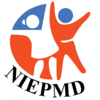Speech therapy aimed at helping individuals with speech, language, and communication disorders. which are crucial for interacting with others and leading an independent life. Whether treating children with developmental delays or adults recovering from neurological impairments, speech therapists use evidence-based techniques to address each individual’s unique needs and goals.Speech therapy can involve a range of techniques and interventions tailored to the specific needs of each individual, helping them develop or improve their ability to communicate effectively.
Common Conditions Treated by Speech Therapy
- Developmental Delays (e.g., in children with speech/language delays)
- Autism Spectrum Disorder (ASD)
- Cerebral Palsy
- Down Syndrome
- Stroke
- Traumatic Brain Injuries
- Aphasia (language impairment caused by brain injury)
- Hearing Impairment and Hearing Loss
- Aging-related issues such as cognitive decline, dysphagia, or voice changes
What Happens in a Speech Therapy Session?
- Initial Assessment:
- The process starts with a comprehensive evaluation, where the SLP gathers information about the individual’s speech, language, and cognitive history, and may administer tests to determine the nature of the disorder.
- Goal Setting and Treatment Plan:
- Based on the assessment, a personalized treatment plan is created with clear, measurable goals to address specific needs.
- Therapy Sessions:
- Therapy can involve a combination of one-on-one or group sessions, exercises, and activities aimed at improving the individual’s speech, language, social communication, or swallowing abilities. This may include drills to improve articulation, social skills training, cognitive exercises, or the use of assistive technology for communication.
- Involvement of Family and Caregivers:
- Families and caregivers are often included in therapy sessions, particularly for children. They are given strategies to help reinforce therapy goals at home and in social settings.
- Progress Monitoring and Adjustments:
- Regular follow-ups track progress. The SLP adjusts the therapy plan as needed to ensure continued progress and success.
Benefits of Speech Therapy
- Improved Communication Skills: Enhanced ability to express thoughts, follow conversations, and understand others.
- Better Social Interaction: Improved social communication skills, leading to better relationships and integration into community or work environments.
- Increased Independence: Better language and communication skills help individuals with daily tasks and self-expression.
- Enhanced Quality of Life: Effective communication leads to greater independence in activities of daily living and contributes to overall well-being.
- Improved Confidence: Overcoming speech and language barriers boosts self-esteem and confidence, especially in social and professional settings.
When Should You Seek Speech Therapy?
It’s important to seek speech therapy if any of the following signs are observed:
- In Children:
- Speech delays, such as not speaking by a certain age.
- Difficulty pronouncing words or making sounds correctly.
- Trouble understanding instructions or concepts.
- Difficulty following social cues or making eye contact.
- Challenges with reading, writing, or expressing ideas clearly.
- In Adults:
- Difficulty speaking after a stroke or brain injury.
- Persistent hoarseness or changes in voice.
- Trouble swallowing or choking while eating.
- Difficulty understanding speech or following conversations.
- Memory or cognitive problems affecting communication.


